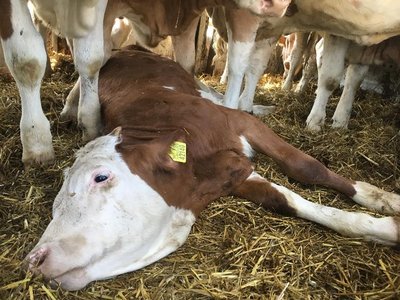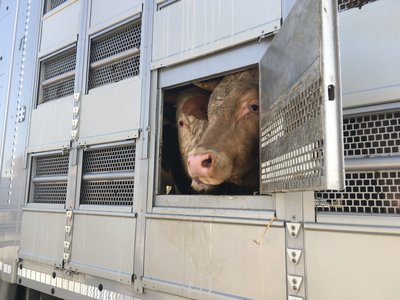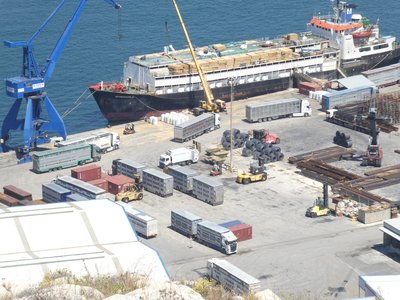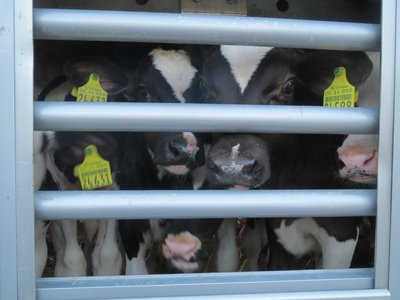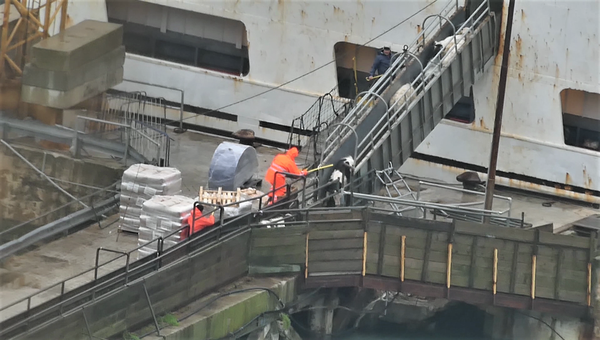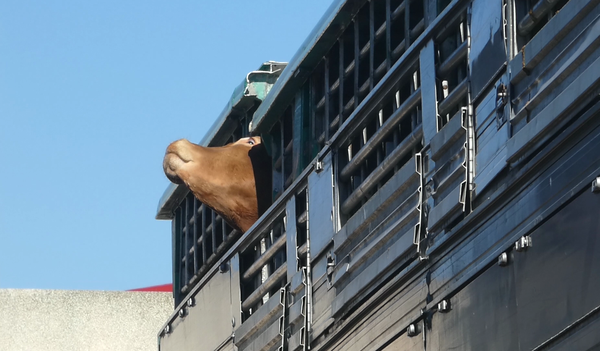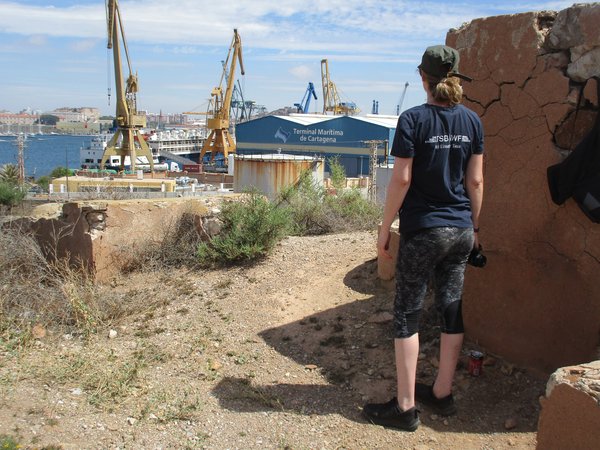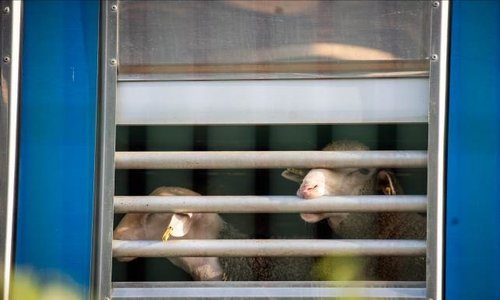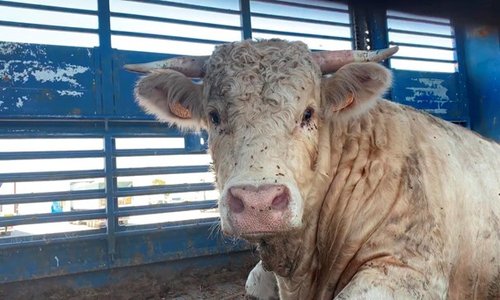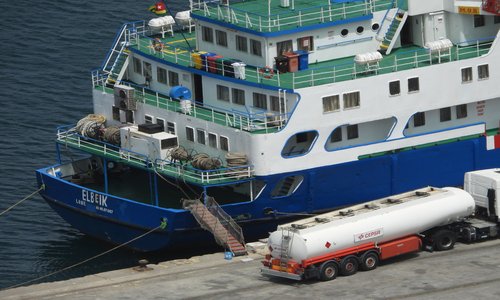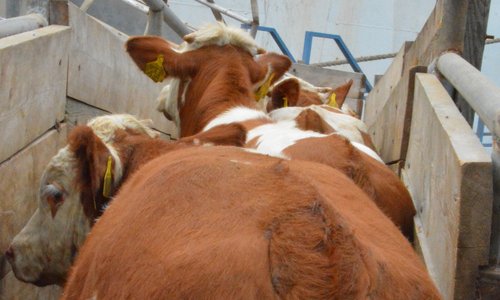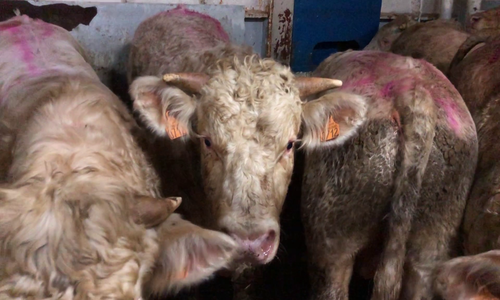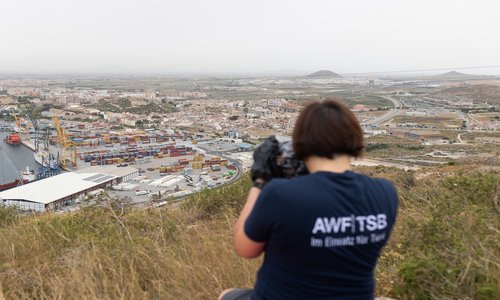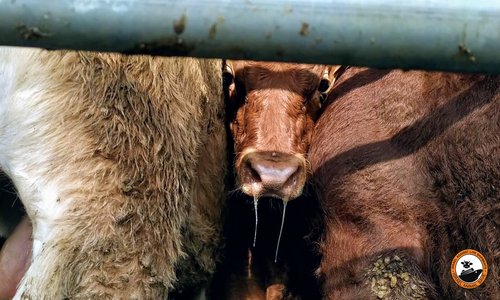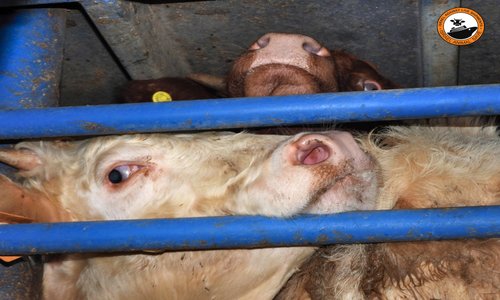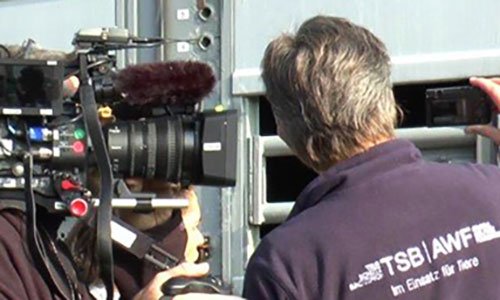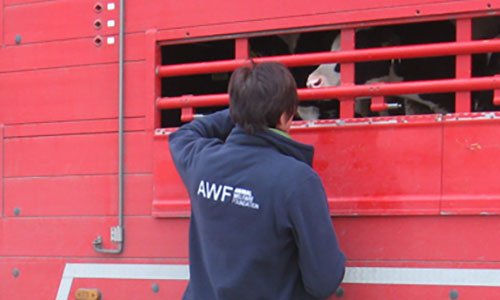We demand an end for cruel live transports by road and sea
Live Exports by Sea
Live exports to non-EU countries by sea
In order to get rid of the overproduction of animals in the European Union, more than three million animals are exported to non-EU countries every year. Most of these animals are cattle or sheep. There is a great demand for live animals, mainly for dairy or meat production, in Egypt, Lebanon, Libya, Israel, Syria and the Maghreb countries. The animals are being transported in trucks from all over the European Union to the EU export ports. From these ports, the animals are being shipped abroad.
For most animals this involves days and weeks of transportation on ferries and vessels in often catastrophic conditions. Sooner or later the animals are slaughtered without stunning in the countries listed above. The methods for fixing the animals in the slaughtering process are often beyond imagination and do not comply with EU animal welfare laws.
Problems of live exports by sea
Since 2015, our teams have been carrying out investigations in the ports of Rasa (Croatia), Koper (Slovenia), Tarragona and Cartagena (Spain). We were even able to accompany animals on a ship from Croatia to Egypt. The results of our investigations are disastrous: Animal transports were neither sufficiently controlled nor sanctioned. The problems are systematic and often have fatal consequences for the animals:
- There is a lack of official controls of the animals and the loading procedures in many ports (e.g. the handling of the animals is brutal and even injured animals are being transported)
- The animals must often remain on the trucks for hours until they are loaded onto the ship
- The infrastructure in the loading and destination ports are insufficient (lack of stables, poor loading facilities)
- Unsuitable and outdated ships (e.g. high risk of injury, poor ventilation, animals must lie down in their own excrements)
- No medical support for sick or injured animals on ships
- There is no official monitoring of the animals for the transport section at sea until their arrival (e.g. number of sick, injured or dead animals)
- Dead animals and manure are disposed in the Mediterranean Sea
What we are doing
In 2017, the international firm Conte & Giacomini which specialises in EU law, filed an extensive complaint about sea transports with the European Commission on our behalf. In this complaint we asked the EU Commission to initiate infringement proceedings against various member states. The proceedings are still ongoing.
As a response, the EU Commission carried out inspections in the EU ports for the first time in 2018 and 2019 and confirmed many of the problems mentioned above. This increases the chances of infringement proceedings before the European Court of Justice.
We will continue to document shortcomings of animal transports by sea even though it becomes more difficult for our teams to get into the ports and in proximity of the animals.
We are opposing live exports of animals to third countries and demand a limitation of the transport duration for live transports.
Together with our umbrella organisation, the Eurogroup for Animals, we will continue to pressure politicians in order to achieve improvements for the animals.
How you can get involved
Support our teams with your donation:
Donate kilometres for our investigations
Stay informed about our work:
Sign up for our newsletter
Further Information
Fact Sheet:
Long-distance transports
Dossier:
Animal Welfare Overboard
Resolution of the European Parliament:
Protection of animals during transport within and outside the EU
Regulation on animal transports:
Council Regulation (EC) No 1/2005 on the protection of animals during transport
Study 2024: AWF x Robin des Bois
64 EU-approved livestock carriers
Study (Robin des Bois, AWF|TSB):
78 EU-approved livestock carriers
Study commissioned by the ANIT Commitee:
Animal welfare on sea vessels and criteria for approval of livestock authorisation
